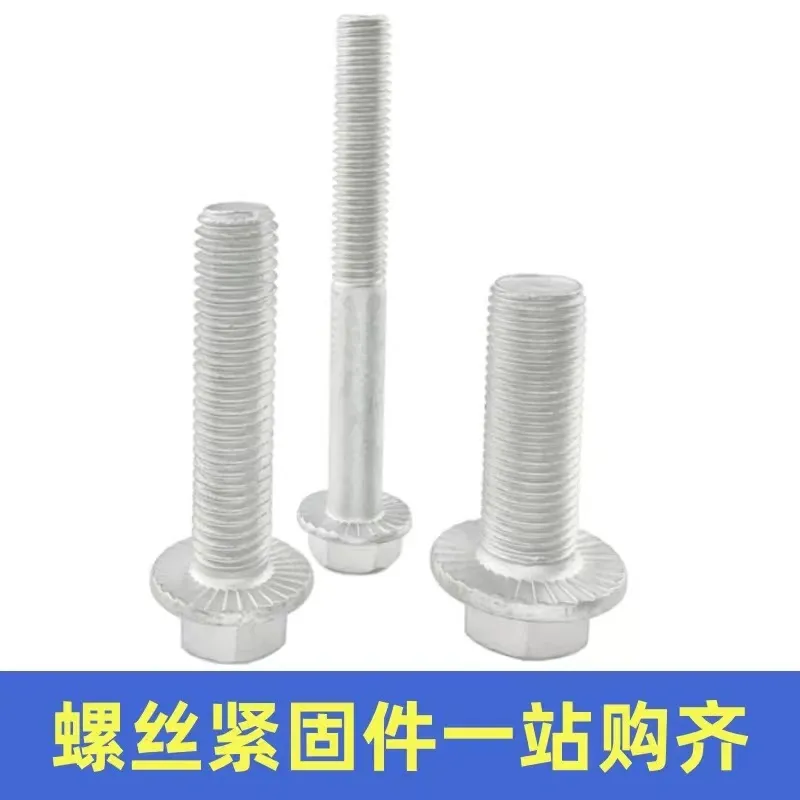

plain washer m16
Sep . 26, 2024 05:46 Back to list
plain washer m16
Understanding Plain Washers A Focus on M16 Specifications
When it comes to assembling machinery or structures, fasteners play a critical role in ensuring stability and safety. Among these, plain washers are fundamental components that aid in the distribution of load and prevent damage to surfaces. In this article, we will take a closer look at plain washers, specifically focusing on the M16 specification, which is commonly used in various engineering and construction applications.
What is a Plain Washer?
A plain washer, often referred to simply as a washer, is a thin, flat disc with a hole in the middle. They are typically made from materials like metal, plastic, or rubber, and serve multiple purposes in fastening applications. The primary functions of a plain washer are to distribute the load of a threaded fastener (like a bolt or screw), protect surfaces from damage, and prevent the fastener from loosening due to vibrations.
The M16 Specification
The term M16 refers to the metric bolt size, where 'M' signifies that it is a metric bolt and '16' indicates the outer diameter of the bolt thread in millimeters. Therefore, an M16 bolt has a nominal diameter of 16mm. When accompanying an M16 bolt, the appropriate washer must be selected to match its size effectively.
The standard outer diameter of an M16 plain washer typically ranges from about 30mm to 34mm, while the inner diameter matches the 16mm size of the bolt. The thickness of the washer can vary but is generally around 2-3mm, depending on the specific requirements of the application.
Functions of M16 Plain Washers
plain washer m16

1. Load Distribution When an M16 bolt is tightened, the pressure exerted on the surface can cause deformation. The plain washer helps distribute this load over a larger area, reducing the risk of damage to the material being fastened. By providing a broader surface area, washers help prevent dents, scratches, or other forms of wear on the substrates.
2. Prevention of Loosening In applications where machinery or structures are subject to vibration, plain washers play a vital role in preventing fasteners from loosening. By sitting between the nut and the surface, they create additional friction, helping to keep the bolt secure over time.
3. Surface Protection Washers, particularly those made from materials resistant to wear and corrosion, help to protect the surfaces of both the fastener and the material it is fastening. This is especially important in harsh environments where exposure to the elements can lead to rust and degradation.
Material Considerations
When selecting M16 plain washers, the choice of material is paramount and should be based on the specific environment where the washers will be used. Common materials include
- Steel Often plated with zinc to resist corrosion, steel washers are strong and suitable for most applications. - Stainless Steel For environments that require resistance to rust and corrosion, stainless steel is an excellent choice, especially in marine or chemical applications. - Plastic Nylon or other plastic washers can also be used in applications where electrical insulation is necessary or where metal components could lead to corrosion.
Conclusion
Plain washers, particularly in the M16 format, are essential components in ensuring the functionality, safety, and longevity of various machinery and infrastructure. Understanding their role and specifications helps engineers and builders make informed choices that lead to superior assembly quality. By considering factors like load distribution, surface protection, and material selection, one can significantly enhance the overall performance and reliability of a project. Whether you're a DIY enthusiast or a professional engineer, never underestimate the value of the humble plain washer in your projects!
Latest news
-
Premium Fasteners Manufacturer | AI-Driven Solutions
NewsAug.01,2025
-
Hot Dip Galvanized Bolts - Hebei Longze | High Strength, Corrosion Resistance
NewsAug.01,2025
-
High-Strength Hot Dip Galvanized Bolts - LongZe | Corrosion Resistance, Custom Sizes
NewsAug.01,2025
-
Best Self Tapping Screws for Drywall - Fast & Secure Installation
NewsJul.31,2025
-
High-Strength Hot Dip Galvanized Bolts-Hebei Longze|Corrosion Resistance&Customization
NewsJul.31,2025
-
Hot Dip Galvanized Bolts-Hebei Longze Metal Products|Corrosion Resistance&High Strength
NewsJul.31,2025

